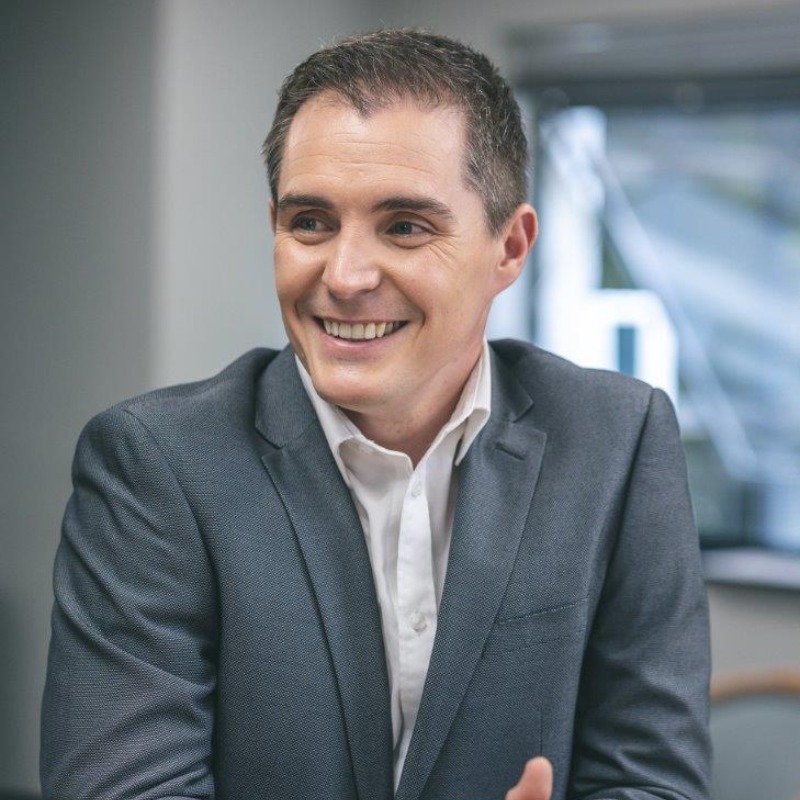Auditors have all the fun - Meet Empact Group’s CFO, Stephen Rushton
Stephen explains how you can create a people-driven culture in your organisation, how CFOs can work sustainably and more.

By Koketso Mamabolo
Stephen Rushton, the CFO of Empact Group, had two options when he was in matric: actuarial science or accounting. To get an idea of what each field entails, he spent a day with some actuaries, and another with some auditors. The result? “The actuaries didn’t talk to each other (or to me) the whole day; whilst the auditors were young, engaging, had cool laptops and seemed to have lots of fun. So, I chose accounting,” says Stephen.
After completing his articles, he joined a privately-owned services company as the general manager, and found a mentor in the company's managing director.
“I quickly became responsible for all support functions including finance, HR, IT and facilities, which meant I ended up getting a wonderfully broad experience with respect to the intricacies of running a business.
“We later sold the business to a US multinational and got my first taste of mergers and acquisitions, as well as insight into the challenges of integrating a newly acquired business into an existing organisation.”
From there he went into mergers and acquisitions at an investment company, which is what ultimately led him to Empact Group, which was one of the companies he was involved in acquiring.
“2020 was a very difficult year for the business due to the impact of COVID, but in hindsight, it presented the perfect opportunity for the new CEO, Alan Quinn and I to work with the Empact team to rebuild the business even stronger than it was before the pandemic and ensure that our commitment to do right by our clients and staff alike underpins everything we do.”
Here Stephen shares some of the insights he’s gathered, including how CFOs can contribute to sustainability.

How does one create a people-driven business culture?
It starts with caring for people. We all have the ability to sense when someone really cares for us and when they’re using us. And we all want to work with people who care for us.
Caring for people then translates into how we relate with them, how we lead them, how we support them and how we develop them. When we engage people with respect, lead with vision and clarity of direction, support them to thrive at work and in the rest of their lives and constantly look for ways to develop them and help them move forward in the ways that matter to them, then we show them that people are at the centre of our business. And when people feel like they are cared for and are the centre of an organisation, then they start leading their teams by putting people at the centre. It all comes down to the maxim of being purpose-led.
How can CFOs contribute to environmental sustainability?
You can manage what you can measure, and CFOs need to take the lead in measuring sustainability typically by incorporating environmental, social and governance. The concept of triple bottom line reporting (i.e. reporting on the financial, environmental and social performance of a business) and sustainability reporting have been around for years, but there remains a function where CFOs need to lead by further developing this reporting. This includes creating systems that accurately capture sustainability data, creating meaningful reports that allow organisations to provide genuine insights into their sustainability performance and constantly identifying and refining the metrics that get used to measure sustainability performance. Using metrics that truly reflect sustainability performance is going to be a key component in addressing greenwashing in the future.
Beyond measurement, CFOs need to bring focus to the relationship between value and sustainability. CFOs, in many respects, are the custodians of value creation in an organisation, and sustainability is one of the most significant levers impacting value. By helping ensure organisations remain focussed on value (i.e. an organisation’s ability to consistently deliver returns for the long term) rather than short term profit, CFOs can ensure that the necessary long term lens is applied to sustainability projects that will benefit both organisations and society

In order to scale sustainably, what are the things business leaders need to consider?
Work hard on achieving alignment – alignment within a team, alignment with others in the organisation who are affected and alignment with the decision-makers. A lack of alignment always creates tension down the road and slows down progress.
Plan carefully and then manage on the go. The process of planning anything is critical in thinking through the many aspects of the project you’re undertaking, in understanding the risks and in ensuring you have access to all of the resources you may require. But once it gets started, there needs to be flexibility in the realisation that the path you actually end up taking is always going to be different to the plan and, therefore, you’ll need to manage it on the go.
What trends do you think financial professionals should be aware of?
I think that geopolitical trends and the associated macro-economics are as important now as they’ve ever been. The past three years that have encompassed the pandemic and a unique macro-economic environment have shown us that organisations never operate in a bubble and need to respond to the rapidly changing world around them. The trend of de-globalisation, the Russia-Ukraine War, the geopolitical risks surrounding China-Taiwan and North Korea-South Korea-Japan, the rise of protectionism, the risk of recession, the global interest rate cycle, persistently high inflation, load-shedding and the risk of social unrest have significant impacts on businesses. Understanding the ongoing trends and the potential scenarios that could play out is key to planning and ensuring that organisations are resilient when shocks occur. Finance professionals need to take the lead in understanding these factors and in helping their organisations prepare for various scenarios.

What challenges have you faced in your career and how did you overcome them?
The biggest challenge has been taking on a new role that you don’t feel ready and equipped for. More often than not, you don’t feel equipped for a new role that you take on. As a result, the first six months in that role always feel like a struggle and you experience many moments of uncertainty as to whether or not you have what it takes. When I first started in M&A, I had no experience in M&A, and had to quickly learn many new skills and ways of doing things. When I became CFO of Empact, I didn’t have experience as CFO in an organisation of the same size or experience leading in such a large environment. Learning to persevere through the struggle, ask lots of questions, have realistic expectations of yourself, have great mentors and partner closely with your boss and colleagues have been the keys to getting through these challenges.
What advice would you give to other CFOs?
Always stay close to the business. The more that you’re attuned to the operations, challenges and opportunities that the business is facing day after day, the more you’ll be able to add real value in every aspect of your contributions to the business.
What books would you recommend to the business community?
My top two business authors are Clay Christensen and Patrick Lencioni. Some of my favourite books by them are The Five Dysfunctions of a Team, The Five Temptations of a CEO, The Innovator’s Dilemma and How will you measure your life?.
And of course, no business book recommendation would be complete without Jim Collins (Good to Great and Built to Last).
What's your advice on making business sustainable? Share your story


.svg)












